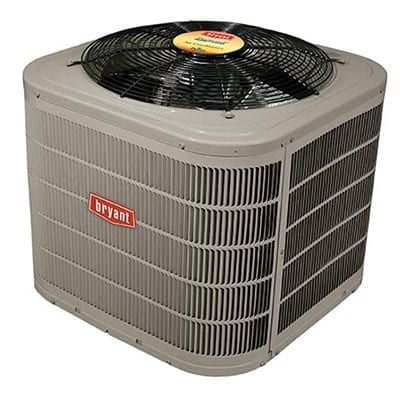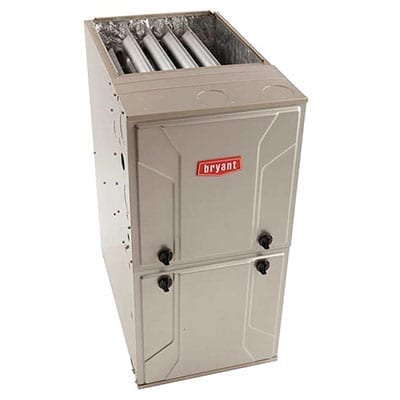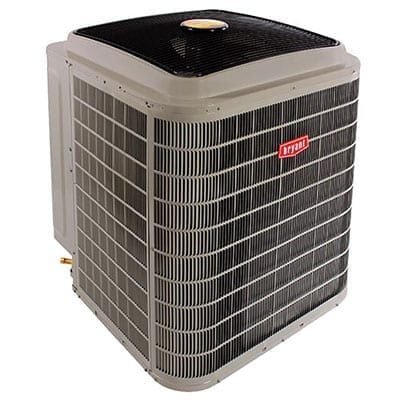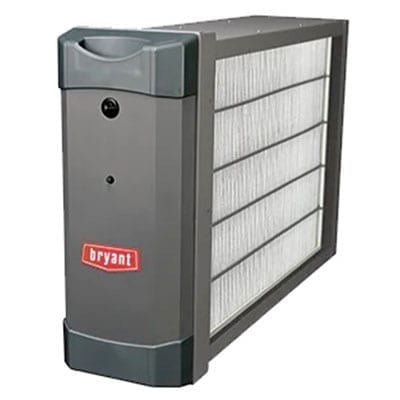Commercial HVAC for Veterinary Clinics
Veterinary clinics have unique HVAC needs. Maintaining proper temperature, humidity control, and air quality is essential for animal care. The right HVAC system can significantly impact the comfort of pets and owners in these settings. Commercial HVAC for veterinary clinics, energy efficiency plays a crucial role in creating optimal conditions conducive to animal health and well-being, as well as ensuring a pleasant experience for clients. Understanding the specific requirements of veterinary clinics is vital when considering HVAC solutions to meet their distinct needs, challenges, and insulation.
HVAC Challenges Unique to Veterinary Clinics
Animal Fur and Dander
Veterinary clinics face HVAC challenges that are unique to their industry. One of the primary challenges is the impact of animal fur and dander on the HVAC system’s performance. These contaminants can clog HVAC air filters, reducing airflow and efficiency. As a result, it’s crucial for veterinary clinics to implement regular filter replacement schedules to maintain optimal HVAC system performance.
The challenges related to animal fur and dander may require more frequent cleaning and maintenance compared to standard commercial HVAC systems. /// This means that veterinary clinic owners must allocate resources for routine cleaning and inspection of their HVAC systems to address challenges. Failure to address these specific challenges, such as HVAC efficiency, can lead to decreased indoor air quality, affecting both pets and staff members.
Managing Odors and Airborne Pathogens
Another significant unique challenge faced by veterinary clinics is managing odors, airborne pathogens, and HVAC challenges associated with animal care. Unlike typical commercial spaces, veterinary clinics often deal with strong odors from urine, feces, blood, medications, and HVAC challenges used in treating animals. These odors can be challenging for standard HVAC systems to handle effectively.
To combat this issue, some veterinary clinics invest in specialized filtration systems designed specifically for odor control and pathogen removal. These advanced filtration systems help mitigate the spread of airborne diseases within the clinic while ensuring a more pleasant environment for both animals and humans alike.
Diverse Temperature Requirements
Furthermore, veterinary clinics have diverse temperature requirements due to housing various types of animals such as reptiles, birds, mammals etc., each requiring different environmental conditions suitable for their well-being. For example:
-
Reptiles may need warmer temperatures than mammals.
-
Birds might require specific humidity levels.
-
Small mammals could thrive in cooler environments compared to larger animals like dogs or cats.
Importance of Efficient HVAC Systems in Animal Hospitals
Healthier Environment
Commercial HVAC systems play a crucial role in maintaining a healthy environment for animals in veterinary clinics. Proper ventilation provided by these systems helps to ensure that the air inside the clinic remains clean and free from harmful contaminants. This is especially important as animals can be more susceptible to respiratory issues compared to humans. For example, efficient HVAC systems help remove airborne particles such as pet dander, fur, and dust, which can trigger allergies or respiratory problems in both animals and humans.
animal hospitals often deal with various types of odors due to accidents or medical procedures. An efficient HVAC system equipped with advanced filtration mechanisms can effectively eliminate unpleasant smells, thereby creating a more pleasant environment for pets, their owners, and the clinic staff. This contributes significantly to maintaining a hygienic space where animals can recover without being exposed to unnecessary health risks.
Disease Prevention
Proper ventilation supported by effective commercial HVAC solutions is essential for preventing the spread of diseases within veterinary clinics. By ensuring adequate airflow and air exchange rates, these systems help minimize the concentration of airborne pathogens that could potentially lead to cross-contamination between sick and healthy animals visiting the clinic.
For instance, during flu season or when dealing with contagious illnesses among pets, an efficient HVAC system plays a critical role in reducing the risk of disease transmission within the clinic premises. It helps maintain separate airflow patterns between different areas within the facility such as waiting rooms, examination rooms, surgical suites, and recovery areas—minimizing the chances of infectious agents spreading from one section to another.
Comfortable Temperatures
In addition to health-related benefits for animals and staff members alike,commercial HVAC units contribute significantly towards creating comfortable temperatures within animal hospitals. Maintaining optimal temperature levels not only promotes faster recovery for sick pets but also reduces stress levels among all occupants including pets’ owners who may already be anxious about their pet’s well-being.
Moreover,veterinary clinics often house various types of small mammals like rabbits or guinea pigs along with birds such as parrots—all requiring specific temperature conditions suitable for their species’ comfort and well-being. Efficient heating and cooling capabilities offered by modern commercial HVAC systems allow veterinarians to regulate temperature zones according to each type of animal’s requirements—ensuring they are kept at ideal comfort levels throughout their stay at the clinic.
Addressing Air Quality and Temperature Control in Clinics
Importance of Effective Air Filtration
Temperature control and air quality are crucial for maintaining a healthy environment in veterinary clinics. Efficient air filtration is essential to remove contaminants such as dust, dander, and allergens from the air. This is particularly important in facilities with surgery rooms where maintaining sterile conditions is vital for the health of both animals and staff.
Proper ventilation also plays a significant role in ensuring good air quality within the clinic. It helps reduce the concentration of airborne pathogens by bringing in fresh outside air while expelling stale indoor air. Without adequate ventilation, there’s an increased risk of spreading illnesses among patients or even staff members.
Effective filtration systems can significantly improve overall indoor air quality, reducing the likelihood of animals developing respiratory issues due to poor air conditions. For example, cats are highly susceptible to respiratory diseases, so having clean, filtered air can help prevent these health problems.
The Significance of Precise Temperature Control
Maintaining precise temperature levels is critical for creating a comfortable environment that promotes faster recovery for animal patients. Different species have varying temperature requirements; therefore, it’s essential to have reliable HVAC systems that can cater to these specific needs.
For instance, reptiles need controlled environments with specific temperatures based on their natural habitats. In contrast, mammals like dogs and cats require stable temperatures conducive to their well-being during recovery from surgeries or illnesses.
In addition to patient comfort, accurate temperature control is also vital for preserving medication efficacy within the clinic’s pharmacy area. Many medications used in veterinary care must be stored at specific temperatures to maintain their effectiveness.
Furthermore, precise temperature control contributes significantly to preventing heat-related stress or hypothermia during surgical procedures or medical treatments involving anesthesia. This ensures that animals undergoing procedures remain stable throughout their treatment process.
Solutions for Managing Humidity and Pathogens in HVAC Systems
Dehumidification Control
Humidity control is crucial in commercial HVAC systems for veterinary clinics. Excessive moisture can lead to mold growth, affecting air quality. Dehumidification systems are essential to manage humidity levels within the clinic. These systems help prevent the development of mold, which can be harmful to both animals and staff.
Maintaining optimal humidity levels also contributes to a comfortable environment for animals and helps reduce unpleasant odors that may arise from excessive moisture. By utilizing dehumidifiers, veterinary clinics can ensure a healthier indoor atmosphere while preventing potential damage caused by high humidity.
Implementing effective dehumidification control not only enhances air quality but also supports the overall well-being of animals under care at the clinic.
Neutralizing Airborne Pathogens
In addition to controlling humidity, addressing airborne pathogens is paramount in maintaining a healthy environment within veterinary clinics. Utilizing germicidal UV lamps, commonly installed within HVAC systems, plays a pivotal role in neutralizing harmful microorganisms present in the air.
Germicidal UV lamps are designed to deactivate airborne pathogens such as bacteria and viruses, helping prevent the spread of diseases among animals and minimizing health risks for both pets and staff members. Regular use of these lamps ensures that the circulated air remains free from potentially harmful microorganisms.
By incorporating germicidal UV technology into HVAC systems, veterinary clinics can significantly contribute to creating an environment conducive to animal health while prioritizing safety measures against airborne pathogens.
Cleaning and Maintenance Practices
Regular cleaning and maintenance procedures are indispensable. Routine inspections enable early detection of any issues related to microbial contamination or system malfunctions.
Cleaning components such as coils, drip pans, filters, and ductwork prevents the accumulation of contaminants that could compromise air quality. Scheduled maintenance activities facilitate efficient operation while ensuring that all parts function optimally without contributing to poor indoor air quality due to neglect or oversight.
Consistent cleaning regimens combined with thorough maintenance practices serve as proactive measures aimed at upholding superior indoor environmental conditions within veterinary facilities.
Implementing Zoning and Airflow Control Strategies
Zoning
Zoning in a veterinary clinic’s commercial HVAC system allows for customized temperature control in different areas of the facility. For instance, the front zone where clients are received could be kept cooler and more comfortable, while the back zone where surgical procedures take place might require a different temperature setting. This ensures that both pets and their owners are comfortable throughout their visit.
Proper zoning also contributes to energy efficiency, as it prevents unnecessary cooling or heating of unoccupied areas. By only conditioning the spaces that need it at any given time, energy consumption is minimized, leading to cost savings for the clinic.
Implementing zoning strategies involves segmenting the clinic into distinct zones based on usage patterns and comfort requirements. Each zone is then equipped with its own thermostat for precise temperature regulation.
Airflow Control
Strategic airflow control plays a crucial role in minimizing cross-contamination between rooms within a veterinary clinic. This is particularly important because clinics often treat sick animals who may carry infectious diseases.
By ensuring that contaminated air from one room does not flow into another area, airflow control helps maintain a clean environment throughout the clinic. This can be achieved through proper ventilation design and use of advanced air filtration systems to capture pathogens before they spread through the HVAC system.
Moreover, controlling airflow effectively also contributes to reducing noise levels within different areas of the clinic. The right airflow strategy can minimize disruptive noises caused by air movement while still maintaining optimal air quality for both animals and people present in each space.
Benefits of Regular Maintenance and Duct Cleaning
Prolonged Equipment Lifespan
Regular maintenance of commercial HVAC for veterinary clinics is crucial for prolonging the lifespan of the equipment. By conducting routine check-ups, technicians can identify and address any issues before they escalate into major problems. This proactive approach ensures that the HVAC system operates efficiently, reducing wear and tear on its components. For example, cleaning or replacing air filters regularly prevents dust buildup, which can strain the system and lead to malfunctions.
Maintaining the HVAC system also involves inspecting electrical connections, lubricating moving parts, and calibrating thermostats. These measures contribute to optimal performance while preventing premature wear on critical components such as motors and belts. As a result, regular maintenance not only saves money in the long run by avoiding costly repairs but also extends the overall lifespan of the commercial HVAC systems used in veterinary clinics.
Improved Indoor Air Quality
In addition to preserving equipment longevity, duct cleaning plays a pivotal role in enhancing indoor air quality within veterinary clinics. Over time, ducts accumulate dust, allergens, pet dander, bacteria, mold spores – all of which compromise air quality when circulated through ventilation systems. Routine duct cleaning removes these contaminants from circulation pathways within heating and cooling systems.
By eliminating these pollutants from circulating throughout a clinic’s premises via an efficient filtration process involving clean ducts—airborne particles are significantly reduced indoors—creating a healthier environment for both pets under care at these facilities as well as staff members who spend extended periods working indoors.
Prevention of Unexpected Breakdowns
Another significant benefit associated with regular maintenance is minimizing unexpected breakdowns—a critical advantage considering that interruptions due to faulty climate control could disrupt operations at veterinary clinics where maintaining precise temperature levels is essential for animal health care needs.
Preventive maintenance includes inspecting refrigerant levels; testing controls; examining condensate drains; ensuring proper airflow; checking thermostat accuracy—all essential steps aimed at identifying potential issues early on before they develop into full-blown malfunctions that could necessitate immediate corrective action during peak hours or emergencies.
Energy-Efficient HVAC Options for Veterinary Practices
Variable Refrigerant Flow (VRF)
Variable refrigerant flow (VRF) systems are a fantastic option for commercial HVAC in veterinary clinics. These systems offer precise temperature control, allowing the vet clinic to maintain optimal conditions for both furry patients and pet owners. VRF systems use advanced technology to adjust the refrigerant flow based on the specific needs of different zones within the building. For example, areas with higher energy consumption can receive more cooling or heating as needed, while less active spaces can have their energy usage reduced.
VRF systems not only contribute to hvac efficiency, but they also provide significant energy savings by avoiding unnecessary cooling or heating in unoccupied areas. This is especially beneficial in a veterinary practice where certain rooms may be consistently busier than others throughout the day. By optimizing energy consumption, VRF systems help reduce operational costs while ensuring that pets and their owners are comfortable during their visit.
High-Efficiency Filters
Incorporating high-efficiency filters into the commercial HVAC system of a veterinary clinic is crucial for maintaining excellent indoor air quality while conserving energy. These filters effectively capture dust, allergens, pet dander, and other airborne particles that could compromise air quality if left unchecked. By preventing these contaminants from circulating through the ventilation system, high-efficiency filters create a healthier environment for both animals and humans.
Furthermore, by improving indoor air quality without impeding airflow, high-efficiency filters support energy recovery within the HVAC system itself. When an HVAC unit doesn’t have to work as hard to compensate for poor air quality or clogged filters, it operates more efficiently overall—reducing its energy consumption and extending its lifespan.
Choosing the Right HVAC System for Veterinary Clinics
Clinic Size
When choosing a commercial HVAC system for veterinary clinics, the size of the clinic plays a crucial role. A larger clinic will require a more powerful HVAC system to ensure adequate heating and cooling throughout the entire space. On the other hand, smaller clinics may be adequately served by smaller units that are more energy-efficient.
It’s essential to assess the square footage of the clinic to determine the appropriate capacity needed for an HVAC equipment. This ensures that all areas within the clinic receive proper air distribution without overworking or underperforming the system.
The commercial HVAC provider can conduct a thorough assessment of your clinic’s size and layout to recommend suitable options based on these specific requirements.
Layout and Specific Animal Needs
Veterinary clinics have unique layouts with different zones such as waiting areas, examination rooms, surgical suites, kennels, and isolation areas. Each zone has distinct temperature and ventilation needs depending on its function. For instance:
-
The waiting area requires comfortable temperatures for clients.
-
Examination rooms need precise temperature control for animal comfort during procedures.
-
Surgical suites demand high-quality air filtration systems to maintain sterile environments.
Moreover, considering specific animal needs is crucial when selecting an HVAC system. Some animals may require cooler temperatures than others due to their fur coat density or species-specific heat tolerance levels.
By understanding these factors in detail, you can choose an HVAC system tailored to meet each zone’s unique requirements while ensuring optimal comfort for both animals and humans in every area of your veterinary facility.
Consultation with an experienced commercial HVAC provider is essential for choosing an appropriate system that aligns with your clinic’s size, layout specifics, and animal care necessities.
Conclusion on Optimizing Veterinary Clinic Environments
In conclusion, optimizing the HVAC system in veterinary clinics is crucial for maintaining a safe and comfortable environment for both animals and staff. Addressing unique challenges such as air quality, temperature control, humidity management, and pathogen control through efficient HVAC solutions is paramount. Implementing zoning and airflow control strategies, along with regular maintenance and duct cleaning, can significantly enhance the overall indoor air quality. Furthermore, the selection of energy-efficient HVAC systems tailored to the specific needs of veterinary practices is essential for long-term sustainability and cost-effectiveness.
For veterinary clinic owners and managers, it is imperative to prioritize the optimization of HVAC systems to ensure a conducive environment for animals’ well-being and the health of employees. By taking proactive steps to implement the recommendations outlined in this article, veterinary clinics can create a safer, healthier, and more comfortable space while also contributing to environmental conservation efforts.
Frequently Asked Questions
What are the unique HVAC challenges faced by veterinary clinics?
Veterinary clinics face unique HVAC challenges due to the presence of animals, such as managing airborne pathogens, controlling odors, and maintaining air quality to ensure a healthy environment for both animals and humans.
Why is it important to have an efficient HVAC system in animal hospitals?
Efficient HVAC systems are crucial in animal hospitals to regulate temperature, control humidity levels, and maintain clean air. This helps prevent the spread of diseases, ensures comfort for animals under care, and provides a healthier environment for staff and visitors.
How can veterinary clinics address air quality and temperature control through their HVAC systems?
Veterinary clinics can address air quality by implementing high-quality filters to remove allergens and pathogens. Precise temperature control can be achieved through zoning strategies that cater specifically to different areas within the clinic.
What solutions exist for managing humidity and pathogens in veterinary clinic HVAC systems?
To manage humidity and pathogens effectively in veterinary clinic HVAC systems, options include using dehumidifiers to control moisture levels while also incorporating UV germicidal lamps or HEPA filtration systems to combat airborne contaminants.
What are some energy-efficient HVAC options suitable for veterinary practices?
Energy-efficient options such as variable refrigerant flow (VRF) systems or geothermal heat pumps can help reduce energy consumption in veterinary practices. These technologies offer improved efficiency while providing consistent heating and cooling throughout the facility.
Related Information
Commercial HVAC for Whiskey Bars
Commercial HVAC for Watch Repair Shops
Commercial HVAC for Vintage Clothing Stores
Commercial HVAC for Video Rental Stores
Commercial HVAC for Tutoring Centers
Commercial HVAC for Trophy Shops
Commercial HVAC for Travel Agencies
Commercial HVAC for Toy Stores
Commercial HVAC for Tool Rental Services
The Primary Services Provided By Our Local HVAC Company
Areas We Service
Click on the area below to see what your neighbors are saying about their recent experiences with our company.
Our Locations
14913 SE Kellogg Ave
Milwaukie, OR 97267, USA
4409 SE 24th Ave, Suite 35
Portland, OR 97202, USA




